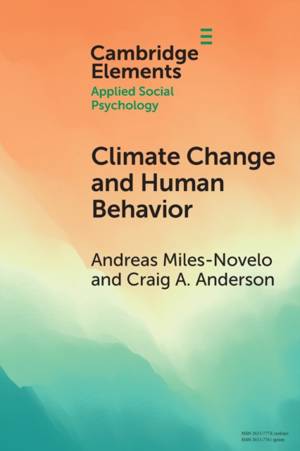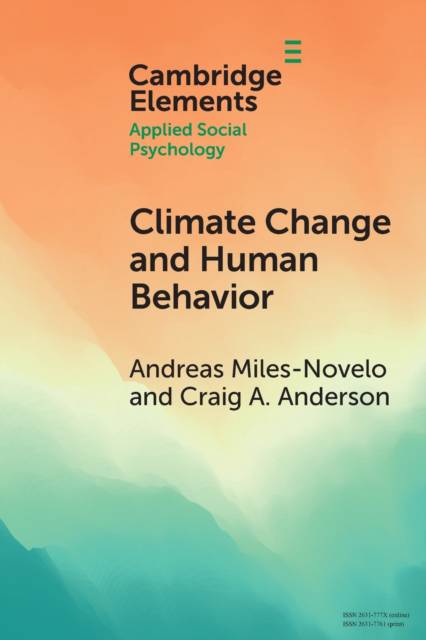
- Afhalen na 1 uur in een winkel met voorraad
- Gratis thuislevering in België vanaf € 30
- Ruim aanbod met 7 miljoen producten
- Afhalen na 1 uur in een winkel met voorraad
- Gratis thuislevering in België vanaf € 30
- Ruim aanbod met 7 miljoen producten
Zoeken
Climate Change and Human Behavior
Impacts of a Rapidly Changing Climate on Human Aggression and Violence
Andreas Miles-Novelo, Craig A Anderson
€ 22,95
+ 45 punten
Omschrijving
Much of the current rhetoric surrounding climate change focuses on the physical changes to the environment and the resulting material damage to infrastructure and resources. Although there has been some dialogue about secondary effects (namely mass migration), little effort has been given to understanding how rapid climate change is affecting people on group and individual levels. In this Element, we examine the psychological impacts of climate change, especially focused on how it will lead to increases in aggressive behaviors and violent conflict, and how it will influence other aspects of human behavior. We also look at previously established psychological effects and use them to help explain changes in human behavior resulting from rapid climate change, as well as to propose actions that can be taken to reduce climate change itself and mitigate harmful effects on humans.
Specificaties
Betrokkenen
- Auteur(s):
- Uitgeverij:
Inhoud
- Aantal bladzijden:
- 75
- Taal:
- Engels
- Reeks:
Eigenschappen
- Productcode (EAN):
- 9781108948678
- Verschijningsdatum:
- 3/03/2022
- Uitvoering:
- Paperback
- Formaat:
- Trade paperback (VS)
- Afmetingen:
- 152 mm x 229 mm
- Gewicht:
- 104 g

Alleen bij Standaard Boekhandel
+ 45 punten op je klantenkaart van Standaard Boekhandel
Beoordelingen
We publiceren alleen reviews die voldoen aan de voorwaarden voor reviews. Bekijk onze voorwaarden voor reviews.











